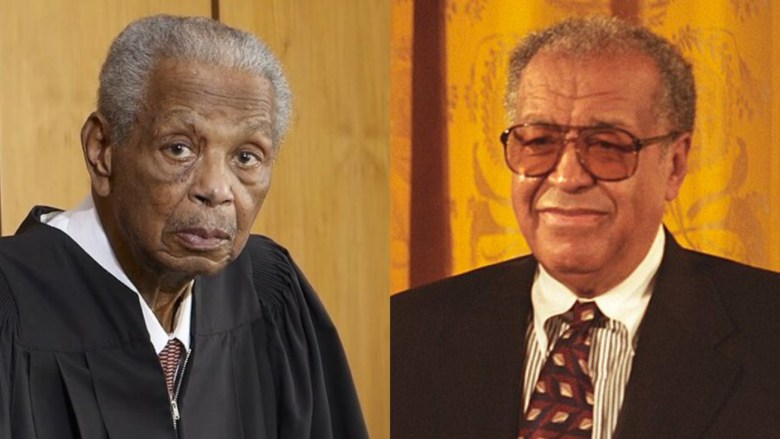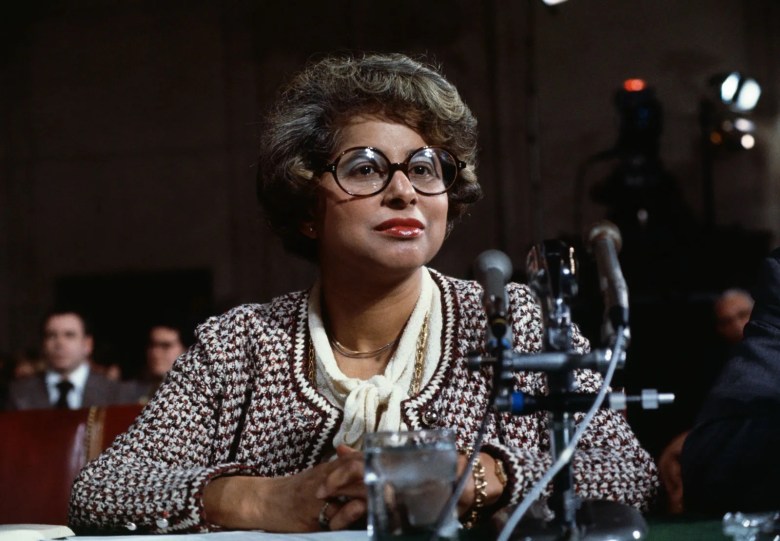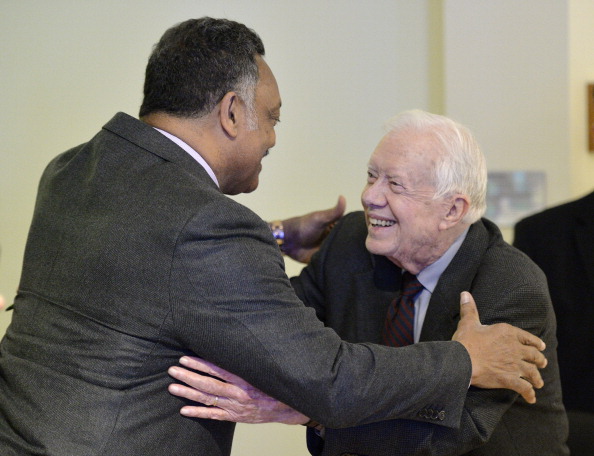|
Listen to this article here
Getting your Trinity Audio player ready...
|
WASHINGTON — Often overlooked in the civil rights movement, President Jimmy Carter quietly championed policies and appointments that reshaped opportunities for Black Americans—leaving a legacy that still impacts the Black community today.
President Jimmy Carter: Pioneering Diversity, Equity and Inclusion in Leadership and the Judiciary
President Carter appointed a total of 56 Black judges to the federal judiciary during his presidency. This number was unprecedented at the time and accounted for more than all previous presidents combined.

These appointments significantly diversified the federal bench and included notable figures such as Damon J. Keith and A. Leon Higginbotham Jr., who became influential voices in civil rights law and judicial leadership.
President Carter appointed Patricia Roberts Harris as Secretary of Housing and Urban Development—the first Black woman to hold a presidential Cabinet position. Later, Harris became Secretary of Health, Education, and Welfare, opening new doors for Black representation in top government roles.

Additionally, Carter selected civil rights leader Andrew Young as U.S. Ambassador to the United Nations, making him a key voice in global diplomacy.
Advancing Educational Equity: President Jimmy Carter’s Fight for Desegregation and Inclusive Policies
President Jimmy Carter established the Department of Education in 1979, which played a key role in enforcing desegregation in schools and ensuring compliance with federal civil rights laws. Moreover, he emphasized the federal government’s responsibility to promote equality in education by elevating it to a cabinet-level priority. The Department worked to provide resources to schools that had been historically underfunded, particularly those serving predominantly Black communities.
Carter’s Justice Department aggressively pursued cases related to school desegregation, particularly in the South. The administration enforced existing desegregation orders and worked to address ongoing resistance to integration in public schools.
Under Attorney General Griffin Bell, the Department of Justice filed lawsuits against school districts that were failing to comply with desegregation mandates, ensuring federal oversight in areas where local governments resisted.
Support for Bilingual and Special Education
President Carter’s administration also worked to expand educational opportunities for minority groups, including Black and Latino students, through programs that supported bilingual education and special education services. These initiatives helped to level the playing field for students from disadvantaged backgrounds.
Affirmative Action in Education
The late president was a strong supporter of affirmative action policies, which were applied in education to help diversify public schools and colleges. By promoting these policies, his administration sought to address systemic inequities in access to quality education.

Empowering Black Communities Through Economic Development and Entrepreneurship
Revitalizing Urban America: Partnerships and Progress in Black Communities
In 1978, Carter introduced a comprehensive national urban policy designed to revitalize distressed urban areas. This policy emphasized the need for a partnership between federal, state, and local governments to tackle urban challenges.
Key initiatives included the expansion of Community Development Block Grants (CDBG) and the introduction of Urban Development Action Grants (UDAG). These programs provided financial assistance to cities for housing rehabilitation, infrastructure improvements, and economic development projects, directly benefiting predominantly Black communities by improving living conditions and creating job opportunities.
Support for Minority-Owned Businesses
Carter’s administration recognized the importance of fostering economic independence within minority communities. In 1979, Carter renamed the Office of Minority Business Enterprise as the Minority Business Development Agency (MBDA) to increase focus. Furthermore, this reorganization prioritized helping minority entrepreneurs overcome barriers like limited capital and market access. Strengthening the MBDA, Carter aimed to grow Black-owned businesses, fostering economic independence and job creation.
Economic Challenges and Criticisms: Limits to President Jimmy Carter’s Vision for Equity
Despite these initiatives, Carter’s presidency faced significant economic challenges, including high inflation and unemployment rates, which disproportionately affected marginalized communities.
However, critics argue Carter’s programs, though well-intentioned, were limited by economic challenges and budgetary constraints during his presidency. In 1980, his decision to cut subsidized public housing units drew criticism for seemingly undermining his urban development commitments.
A Lasting Legacy of Quiet Leadership and Equality
While not seen as revolutionary, Jimmy Carter’s presidency quietly advanced diversity and inclusion, profoundly reshaping opportunities for Black Americans. His enduring legacy highlights the impact of steadfast leadership in promoting equality and paving paths for future progress.


